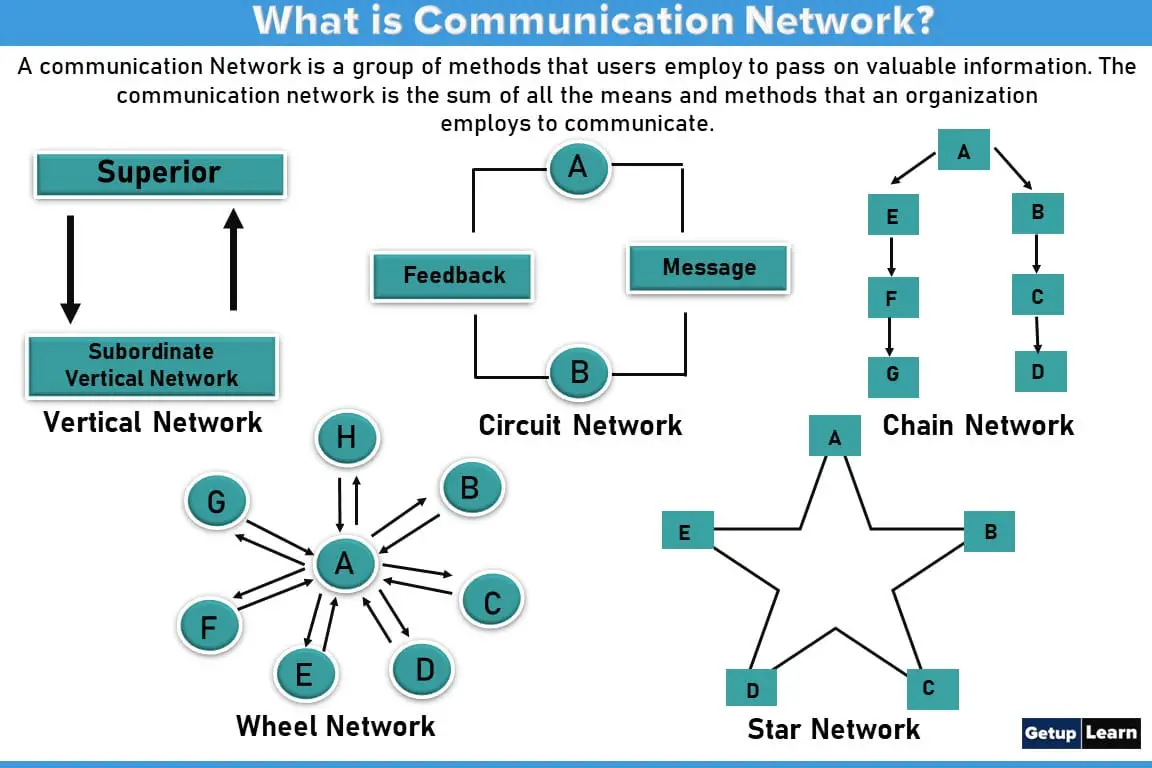Overcoming the No Experience Barrier
Entering the job market can be a daunting task, especially for those with little to no experience. The “no experience” barrier is a common challenge that many new entrants face, making it difficult to secure a job in their desired field. However, there are ways to overcome this hurdle and increase one’s chances of landing a job. This article will provide guidance on where to find job opportunities that don’t require experience, highlighting industries, job boards, and strategies that can help individuals break into the job market.
According to a survey by the National Association of Colleges and Employers, 65% of employers prefer to hire candidates with relevant work experience. However, this doesn’t mean that those without experience are out of luck. Many companies are willing to train and develop the right candidates, even if they lack direct experience. The key is to identify these companies and tailor one’s job search strategy accordingly.
One approach is to focus on industries that are more likely to hire candidates with little to no experience. Retail, hospitality, and food service are examples of industries that often provide on-the-job training and may not require prior experience. Additionally, many companies in these industries have high turnover rates, creating a steady stream of job openings.
Another strategy is to utilize online job boards and career platforms that cater to entry-level job seekers. These platforms often feature job listings that are specifically designed for individuals with little to no experience. By tailoring one’s resume and cover letter to these job openings, individuals can increase their chances of getting noticed by potential employers.
Furthermore, networking and making connections in one’s desired field can also help overcome the “no experience” barrier. Attending industry events, joining professional organizations, and connecting with people on LinkedIn can provide valuable opportunities to learn about job openings and get advice from experienced professionals.
In the next section, we will explore industries that welcome newcomers and provide job opportunities for those with little to no experience.
Identifying Industries that Welcome Newcomers
Certain industries are more open to hiring candidates with little to no experience, providing a great starting point for those looking to break into the job market. Retail, hospitality, and food service are examples of industries that often have entry-level job openings and may not require prior experience. These industries typically provide on-the-job training, allowing new employees to learn and develop skills while working.
In the retail industry, common entry-level jobs include sales associates, customer service representatives, and store clerks. These roles require strong communication skills, attention to detail, and the ability to work well in a team environment. Many retail companies, such as Walmart and Target, offer training programs for new employees to help them develop the skills needed to succeed in these roles.
The hospitality industry also offers a range of entry-level job opportunities, including hotel front desk staff, restaurant servers, and housekeeping personnel. These roles require strong customer service skills, attention to detail, and the ability to work well under pressure. Companies like Marriott and Hilton offer training programs for new employees to help them develop the skills needed to succeed in these roles.
Food service is another industry that often has entry-level job openings, including restaurant servers, hosts/hostesses, and kitchen staff. These roles require strong communication skills, attention to detail, and the ability to work well in a fast-paced environment. Many food service companies, such as McDonald’s and Starbucks, offer training programs for new employees to help them develop the skills needed to succeed in these roles.
When searching for job opportunities in these industries, it’s essential to tailor your resume and cover letter to the specific job opening. Highlighting relevant skills, such as communication and teamwork, can help increase your chances of getting noticed by potential employers. Additionally, many companies in these industries have online job boards and career platforms that make it easy to search and apply for job openings.
In the next section, we will explore how to leverage online job boards and career platforms to find entry-level job opportunities.
How to Leverage Online Job Boards and Career Platforms
Online job boards and career platforms have revolutionized the way people search for jobs. With millions of job listings and career resources at your fingertips, it’s easier than ever to find entry-level job opportunities that match your skills and interests. However, with so many options available, it can be overwhelming to know where to start.
To effectively use online job boards and career platforms, it’s essential to tailor your resume and cover letter to specific job openings. This means highlighting relevant skills, education, and experience that align with the job requirements. Many job boards and career platforms also offer resume-building tools and resources to help you create a strong, keyword-optimized resume.
Some popular online job boards and career platforms for entry-level job seekers include LinkedIn, Indeed, and Glassdoor. These platforms offer a range of features, including job search filters, resume-building tools, and career advice resources. Additionally, many companies have their own career websites and job boards, where they post entry-level job openings and provide information about their company culture and values.
When searching for job opportunities on online job boards and career platforms, it’s essential to use relevant keywords and phrases to find job openings that match your skills and interests. You can also use filters, such as location, job type, and industry, to narrow down your search results. Many job boards and career platforms also offer job alerts and notifications, which can help you stay up-to-date on new job openings and application deadlines.
Another way to leverage online job boards and career platforms is to utilize their career resources and advice sections. Many platforms offer articles, videos, and webinars on topics such as resume-building, interviewing, and job search strategies. These resources can provide valuable insights and tips to help you navigate the job search process and increase your chances of landing an entry-level job.
In the next section, we will explore the importance of networking and making connections in your desired field.
Networking and Making Connections in Your Desired Field
Networking and making connections in your desired field is a crucial step in finding entry-level job opportunities. By building relationships with professionals in your industry, you can gain valuable insights, learn about job openings, and get advice on how to break into the field. One way to start networking is to attend industry events, conferences, and job fairs. These events provide a great opportunity to meet people in your field, learn about the latest trends and developments, and make connections that can help you in your job search.
Another way to network is to join professional organizations related to your field. These organizations often have job boards, networking events, and other resources that can help you connect with professionals in your industry. Additionally, many organizations offer mentorship programs, which can provide valuable guidance and support as you navigate your career.
LinkedIn is also a powerful tool for networking and making connections in your desired field. By creating a strong LinkedIn profile and connecting with professionals in your industry, you can build relationships, learn about job openings, and get advice on how to advance in your career. You can also join LinkedIn groups related to your field, which can provide a great way to connect with others who share your interests and goals.
When networking and making connections, it’s essential to be strategic and intentional. This means being clear about your goals and what you’re looking for, and being prepared to talk about your skills, experience, and education. It’s also important to follow up with the people you meet, whether it’s through email, phone, or LinkedIn, to continue building relationships and exploring opportunities.
By building a strong network of connections in your desired field, you can gain access to job opportunities that may not be advertised publicly, get advice and guidance from experienced professionals, and build a strong foundation for your career. In the next section, we will explore the benefits of internships and volunteer work in gaining experience and building a professional network.
Exploring Internships and Volunteer Opportunities
Internships and volunteer work can be a great way to gain experience and build a professional network, even if you have no prior experience. Many organizations offer internships and volunteer opportunities that can provide valuable skills and experience, and can also lead to full-time job opportunities. Additionally, internships and volunteer work can be a great way to explore different industries and career paths, and can help you determine what type of work you enjoy and are well-suited for.
There are many organizations that offer internships and volunteer opportunities, including non-profit organizations, government agencies, and private companies. Some examples of organizations that offer internships and volunteer opportunities include the American Red Cross, the National Park Service, and the Smithsonian Institution. You can also search for internships and volunteer opportunities on websites such as Internships.com and VolunteerMatch.org.
When considering internships and volunteer opportunities, it’s essential to think about what you hope to gain from the experience. Are you looking to gain specific skills or experience? Are you interested in exploring a particular industry or career path? Are you looking to build your professional network? By thinking about what you hope to gain from the experience, you can choose internships and volunteer opportunities that align with your goals and interests.
Internships and volunteer work can also provide a great opportunity to build your professional network. By working with experienced professionals and making connections in your industry, you can build relationships that can help you in your future career. Additionally, internships and volunteer work can provide a great opportunity to gain references and recommendations, which can be helpful when applying for jobs.
Overall, internships and volunteer work can be a great way to gain experience and build a professional network, even if you have no prior experience. By considering what you hope to gain from the experience and choosing opportunities that align with your goals and interests, you can make the most of your internship or volunteer experience and set yourself up for success in your future career. In the next section, we will discuss the importance of creating a strong online presence.
Creating a Strong Online Presence
In today’s digital age, having a professional online presence is crucial for job seekers, especially those with little to no experience. A strong online presence can help you stand out from the competition, showcase your skills and experience, and connect with potential employers. In this section, we will discuss the importance of having a professional online presence and provide tips on how to create one.
A LinkedIn profile is a must-have for any job seeker. LinkedIn is a professional networking site that allows you to connect with potential employers, showcase your skills and experience, and join relevant groups and discussions. When creating a LinkedIn profile, make sure to include a professional headshot, a clear and concise headline, and a detailed summary of your skills and experience.
In addition to a LinkedIn profile, having a personal website or blog can also be beneficial. A personal website or blog can provide a platform for you to showcase your skills and experience, share your thoughts and ideas, and connect with potential employers. When creating a personal website or blog, make sure to choose a professional domain name, use a clean and simple design, and regularly update your content.
Other social media platforms, such as Twitter and Facebook, can also be used to create a professional online presence. However, it’s essential to keep your personal and professional online presence separate. Create a separate Twitter or Facebook account for your professional online presence, and make sure to keep your content professional and relevant to your industry.
When creating a strong online presence, it’s essential to be consistent and authentic. Use the same profile picture and headline across all your social media platforms, and make sure to regularly update your content. Also, be authentic and transparent in your online presence. Share your thoughts and ideas, and be open to feedback and criticism.
By creating a strong online presence, you can increase your visibility, showcase your skills and experience, and connect with potential employers. In the next section, we will discuss how to prepare for job interviews with no experience.
https://www.youtube.com/watch?v=A6aSFrEPX00
Preparing for Job Interviews with No Experience
Preparing for a job interview can be daunting, especially when you have no experience. However, with the right strategies and mindset, you can increase your chances of acing the interview and landing your desired job. When searching for where to work with no experience, it’s essential to focus on developing skills that are valuable to potential employers.
Research the company thoroughly to understand its mission, values, and culture. Review the job description and requirements to identify the skills and qualifications the interviewer will be looking for. Prepare examples of how your skills and education can be applied to the job, even if you don’t have direct experience.
Practice answering common interview questions, such as “Why do you want to work for this company?” or “What are your strengths and weaknesses?” Use the STAR method to structure your responses, which involves describing a situation, the task you needed to accomplish, the actions you took, and the results you achieved.
Highlight transferable skills you may have gained through education, volunteering, or extracurricular activities. For example, if you were a team leader in a school project, you can emphasize your leadership and communication skills. If you worked as a volunteer, you can highlight your ability to work with others and adapt to new situations.
Be prepared to ask questions during the interview, such as “What are the biggest challenges facing the company/department right now?” or “Can you tell me more about the company culture?” This shows your interest in the company and your willingness to learn.
Finally, be confident and enthusiastic during the interview. Show the interviewer that you are eager to learn and grow with the company. Remember, the interviewer is not only assessing your skills and experience but also your attitude and fit with the company culture.
By following these tips, you can increase your chances of success in a job interview, even with no experience. Remember to stay positive and focused, and don’t be discouraged if you don’t land the job immediately. Keep working on your skills and experience, and eventually, you’ll find the right opportunity.
Staying Positive and Persistent in Your Job Search
Searching for a job can be a long and challenging process, especially when you have no experience. It’s essential to stay positive and persistent to increase your chances of success. When looking for where to work with no experience, it’s crucial to maintain a positive attitude and focus on your goals.
Set specific, achievable goals for your job search, such as applying to a certain number of jobs per week or attending a certain number of networking events. Tracking your progress can help you stay motivated and focused. Break down larger goals into smaller, manageable tasks to help you stay on track.
Seek support from friends and family members who can offer encouragement and advice. Consider joining a job search support group or online community to connect with others who are going through similar experiences. Sharing your experiences and hearing the stories of others can help you stay positive and motivated.
Take care of your physical and mental health during your job search. Regular exercise, healthy eating, and sufficient sleep can help you maintain your energy and focus. Engage in activities that bring you joy and help you relax, such as reading, meditation, or hobbies.
Stay organized and manage your time effectively. Use a planner, calendar, or app to keep track of your job applications, deadlines, and follow-up tasks. Prioritize your tasks and focus on the most important ones first.
Don’t be discouraged by rejections or setbacks. Instead, use them as opportunities to learn and improve. Ask for feedback from interviewers or hiring managers to gain insights into what you can do better. Use this feedback to refine your resume, cover letter, and interview skills.
Remember, finding a job takes time, and it’s not uncommon for it to take several months or even longer. Stay positive and persistent, and eventually, you’ll find the right opportunity. Keep working on your skills and experience, and don’t be afraid to try new things and take calculated risks.
By staying positive and persistent, you can overcome the challenges of finding a job with no experience. Remember to take care of yourself, stay organized, and focus on your goals. With time and effort, you’ll increase your chances of success and find a job that’s right for you.







